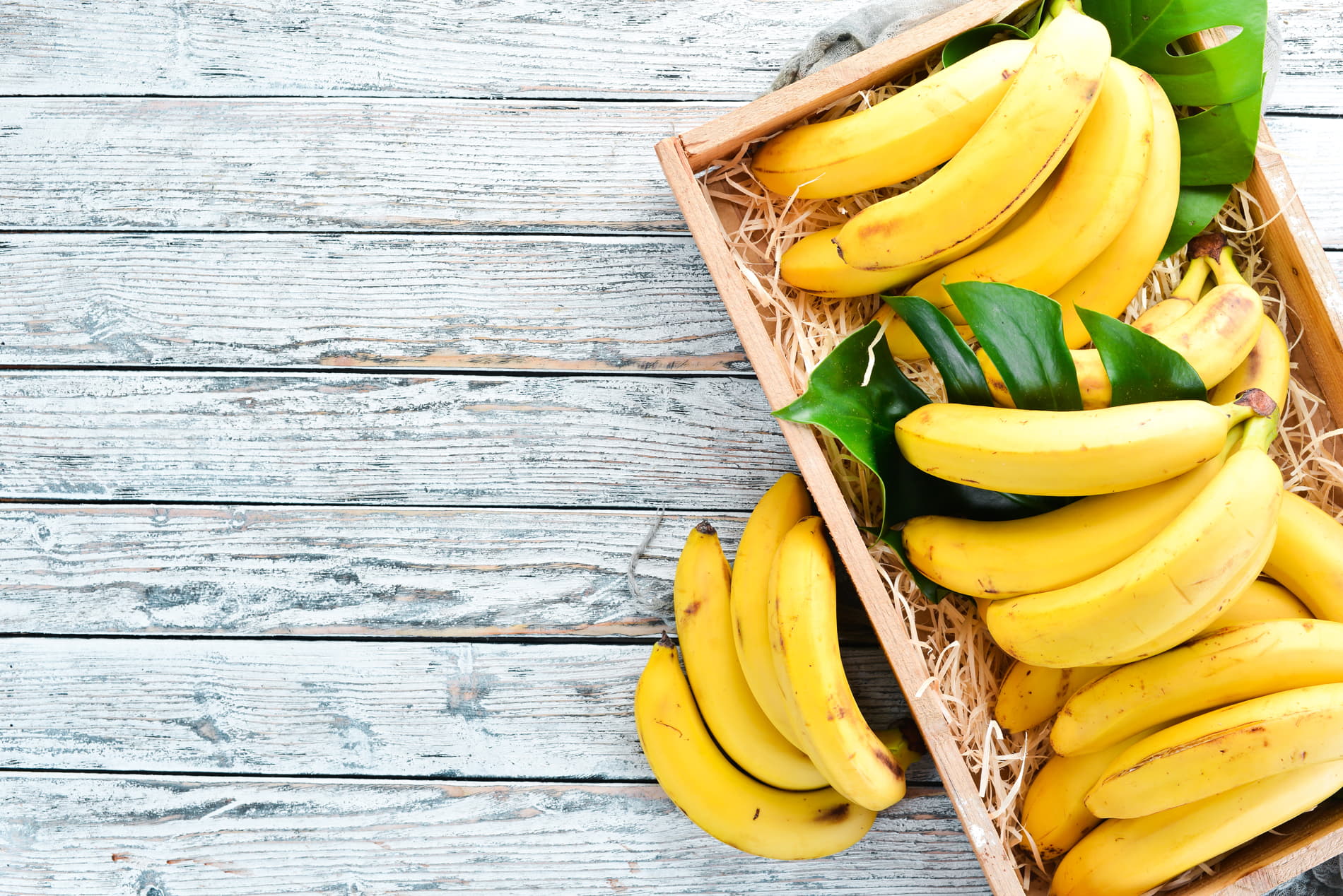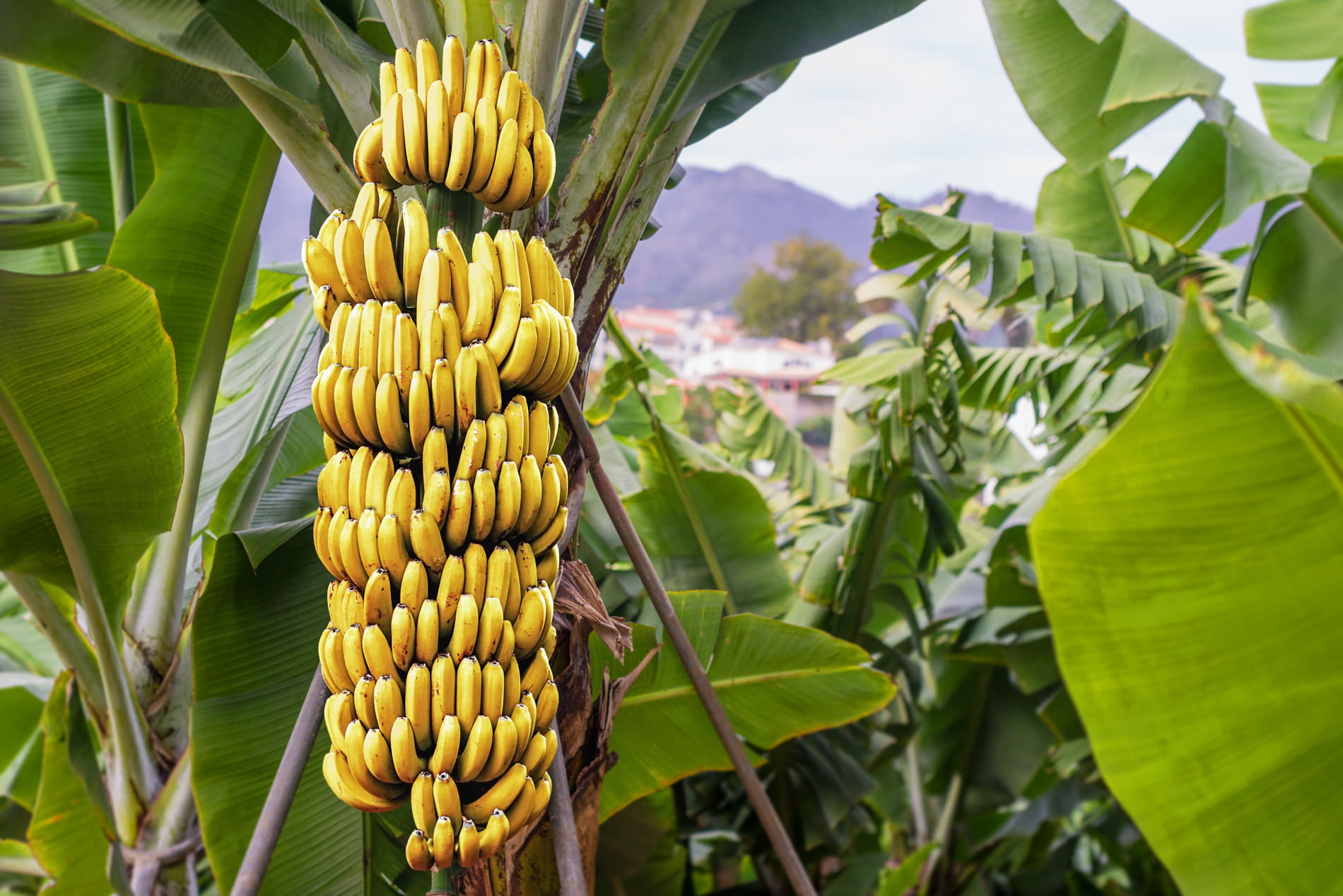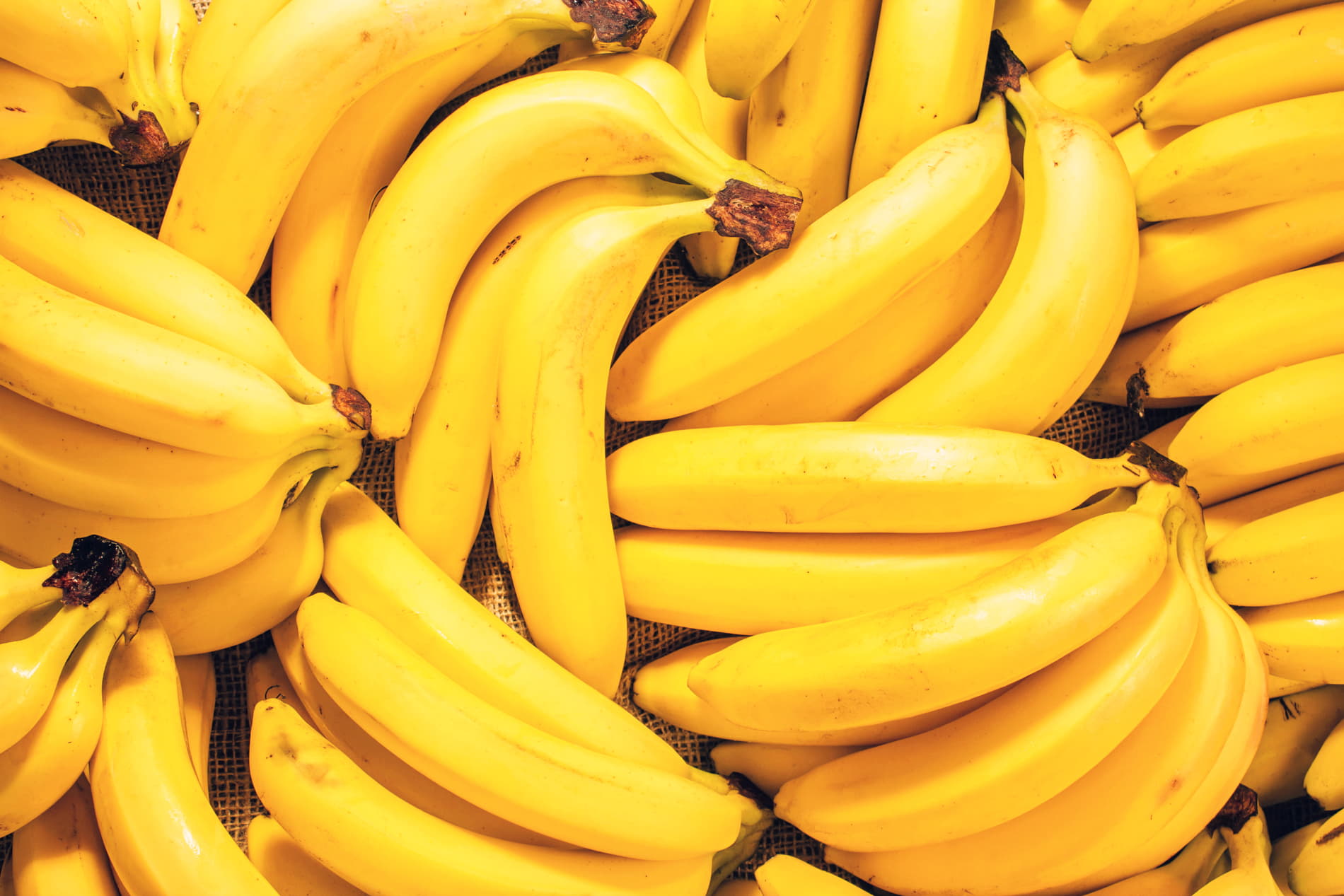Properties of the banana
Discover the properties of the banana with us. The banana is a well-know and commonly-eaten fruit, but do you know about the benefits it provides for your body?
fresh food
Share

Today, there are not many fruits that are as complete as the banana because, apart from being delicious, it is a fruit you can find in your supermarket all year round and it has many beneficial properties for health. The most well-known of these is its high levels of potassium, but do you really know what benefits bananas provide for your health?
Where do they come from?
The banana is a tropical fruit that comes from a herbaceous plant of the same name, banana, although it is also known as a banana tree. This plant belongs to the musaceae family and originates from Southeast Asia, specifically from India. It became known in the Mediterranean region after the Arabic conquest in 650 AD. The banana reached the Canary Islands in the 15th century and from there, it was transported to America in 1516.
The banana is one of the most important crops in the world and it is the main crop of the tropical regions of Southeast Asia.

Discover all the varieties
Although in Spain the Canary Islands banana is the most common, there are a large number of varieties of this fruit. However, they are all dependant on the climatic conditions of the region.
There are over one thousand varieties of banana in the world. Some of the most popular varieties are:
- Gros Michel
- Cavendish
- Dwarf banana (Canary Islands banana)
- Banana
- Plantain or frying banana
- Red banana
In Spain, we tend to find the Canary Islands banana and the plantain. Do you know the difference between them? The Canary Islands banana can be distinguished from the banana because it is smaller, sweeter, softer, it has black marks on its yellow skin and is richer in nutrients. In contrast, although the plantain looks more like a banana, it is larger, has a greener skin and is not as sweet as the previous two.

Banana: nutritional properties
The banana is a fruit that is loaded with nutrients. Among these, you will find:
- Carbohydrates: at 20%, this fruit is high in carbohydrates. In the immature fruit, the majority of these consist of starch, but once the banana has ripened, they are converted into more easily-digestible sugars, such as sucrose, glucose and fructose.
- Potassium: if anything characterises the banana it is its high content of this mineral. Potassium contributes to the normal function of the nervous system and the muscles. It also helps to maintain normal blood pressure.
- Vitamin B6: this fruit is rich in vitamin B6, which contributes to reducing tiredness and fatigue, as well as regulating hormonal activity. This vitamin also helps to maintain the nervous and immune systems in good health.
- Vitamin C: the banana is a source of vitamin C, which contributes to the normal formation of collagen for the normal functioning of the blood vessels, the bones, cartilage, gums, teeth and the skin.
- Manganese: this mineral is also present in the banana and helps to protect cells from oxidative stress. It also plays a part in maintaining the bones in normal condition.
The sweetness that characterises the banana, along with its high nutritional value and how easy it is to keep, make this the favourite fruit of children and grown-ups. It is also a fruit that you can always find in the fruit section of the supermarket.






